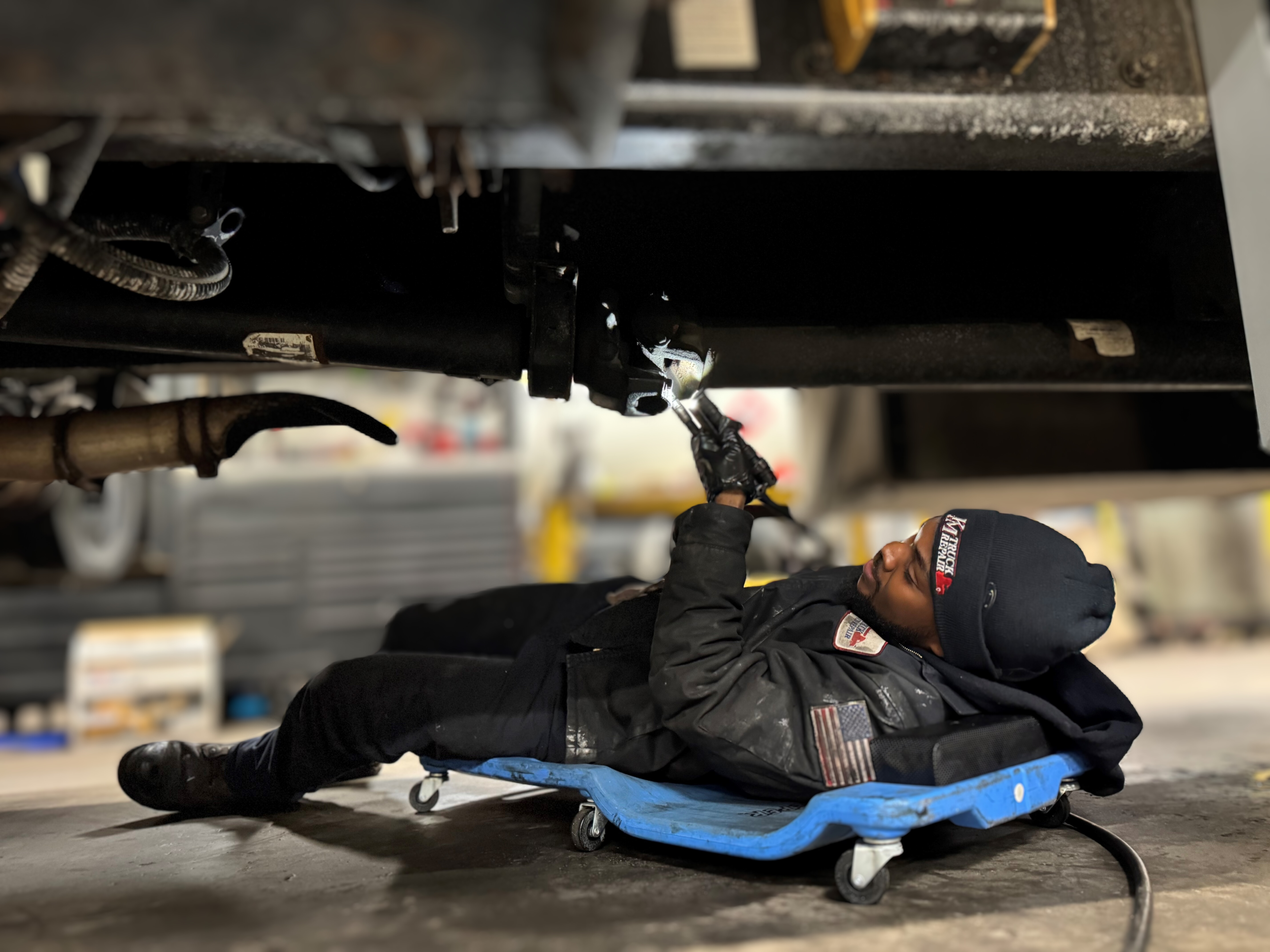An ounce of prevention is a pound of savings. Scheduling regular check-ups for your fleets semi and box trucks is key to extended the life of components such as bearings, chassis and suspension. During the preventative maintenance service, your technician should grease all grease fittings under your truck. This will ensure smooth operations and prevents dirt from getting into the components. You should grease your semi truck every 12,000 to 15,000 miles.

